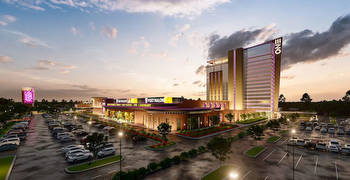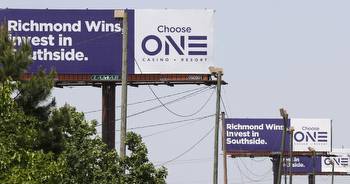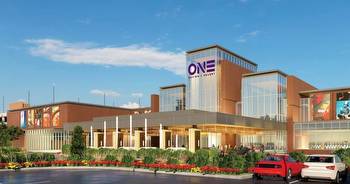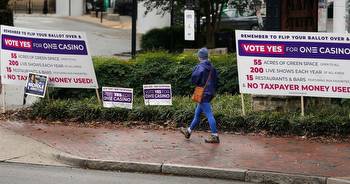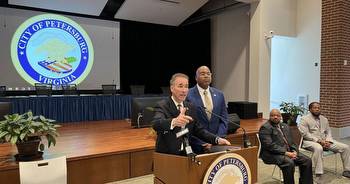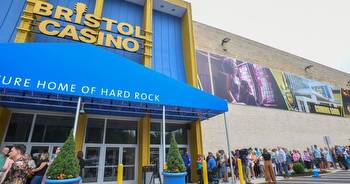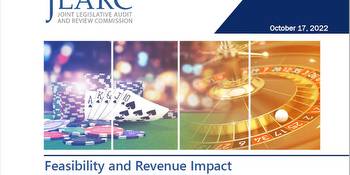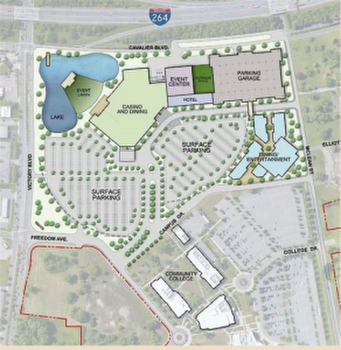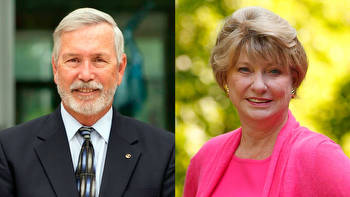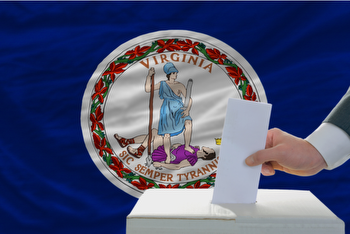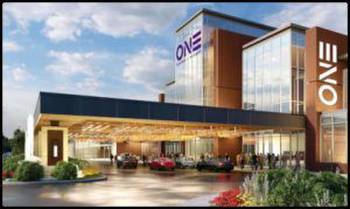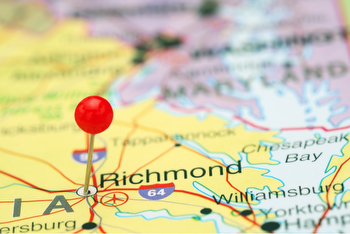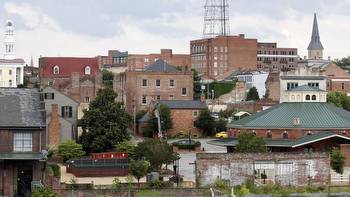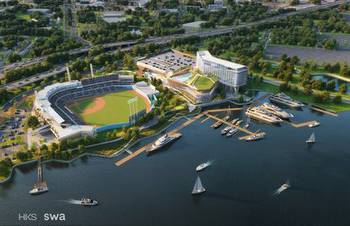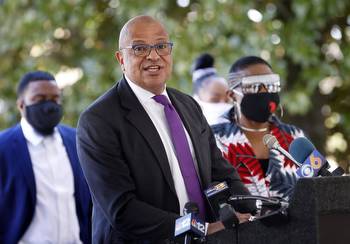Study finds Petersburg, Richmond could support casinos, separately or together
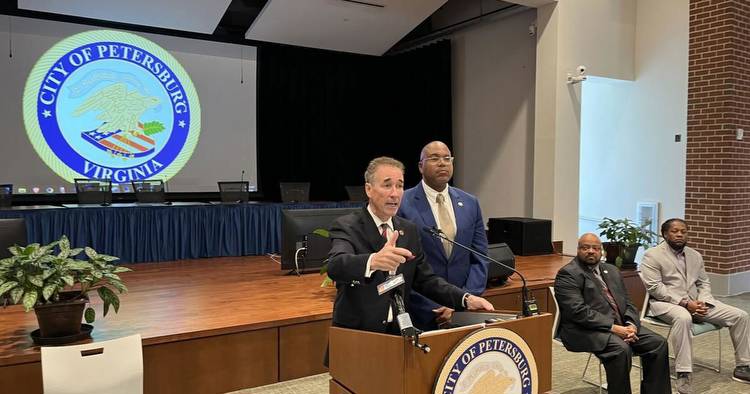
Petersburg could support the operation of a casino, regardless of whether Richmond were to host one as well, a long-awaited legislative study concluded on Monday.
If both cities opened casinos in 2028, the Joint Legislative Audit and Review Commission found that the amount of tax revenues and new jobs would be lower in Petersburg than if Richmond did not open a casino in close competition. It also found that a Richmond casino would generate more gaming revenue and jobs than one in Petersburg.
However, two new casinos would boost state gaming revenues to $1.1 billion in 2028, including money from four other casino operations that voters in Bristol, Norfolk, Portsmouth and Danville already approved, the study found.
Those casinos would generate less revenue if Petersburg opens a gaming resort and even less if Richmond approves a casino after voters rejected a proposal last year.
JLARC staff deferred to lawmakers about the best course for the General Assembly to take when it convenes in January.
“It’s pretty obvious this is going to be a major issue in the upcoming session,” said Sen. Janet Howell, D-Fairfax, chair of both JLARC and the Senate Finance and Appropriation Committee. “It’s likely to be a brawl.”
Sen. Joe Morrissey, D-Richmond, threw the first rhetorical punch. He already has filed legislation to make Petersburg the fifth casino location in Virginia and eliminate a potential rival site in Richmond.
“We are not interested in two regional casinos,” Morrissey said in a phone interview after attending the JLARC meeting. “We want a destination resort in Petersburg. If there are two casinos 25 miles from each other, they would cannibalize each other.”
The study found that a Petersburg casino could generate $204 million in gaming revenues by 2028, larger than the casino that has already opened in temporary quarters in Bristol and slightly larger than the Portsmouth operation scheduled to launch next year. It would generate $140 million if Richmond were to open a competing casino.
It also found that a Petersburg casino alone would generate almost $25 million in tax revenue — $12.3 million for the state and $12.2 million for the city, and create almost 1,300 jobs.
Those numbers assume a resort with 1,700 slot machines, 70 table games, a 300-room hotel, a 1,500-seat event center and restaurants for up to 600 diners.
The size of the Petersburg resort and casino operation would be smaller if Richmond were to open a rival resort, the study said, but the amount of additional state tax revenue from the two operations would be almost double, about $49 million. The increased state revenue from the two casinos would be partly offset by reduced revenues from the other four casinos.
“The casino in Petersburg would be larger if there is no Richmond casino,” said Tom Zitt, executive vice president of the Innovation Group, the state’s gaming consultant.
A Richmond casino would lower new local gaming tax revenues in Petersburg by almost $4 million and reduce the number of new jobs by about 300, the study estimates. Richmond would receive almost $15 million in new tax revenues if casinos opened in both cities.
“The jobs are there and they need the jobs in Petersburg,” Morrissey said. “It’s just another side dish for Richmond; for Petersburg, it’s the main entree.”
However, the study found that a casino in Richmond would generate about $300 million and 2,000 jobs — almost $100 million more in revenue and 700 more jobs than one in Petersburg by itself.
“The number one choice would be the city of Richmond,” said 8th District City Councilwoman Reva Trammell, who strongly supported the previous proposal for a casino in her district.
In a statement on Monday, Richmond Mayor Levar Stoney said, “We’re pleased that the facts presented in the JLARC study reaffirm Richmond as the best choice for a Central Virginia casino.”
“We look forward to further discussion on this important economic development opportunity, which would provide well-paying jobs and much-needed revenue to address priorities,” Stoney said.
Casinos in both cities would increase net gaming revenue from all operations by $389 million to more than $1.1 billion. State gaming tax revenues would rise from $103.5 million to $115.8 million with a casino only in Petersburg and to $130.1 million with an additional casino in Richmond. But those totals include reduced revenues at the other four casinos.
The General Assembly voted in 2020 to legalize casino gambling in five cities, including Richmond. Those include two cities, Norfolk and Portsmouth, on either side of the Elizabeth River in Hampton Roads.
“I think that was wrong,” Morrissey said. “You’ve got two casinos right across the river from each other.”
Voters in Norfolk, Portsmouth, Danville and Bristol approved casino operations in 2020. Richmond voters narrowly rejected a $650 million casino resort proposed in South Richmond by Urban One and Peninsula Pacific Entertainment, which also owns Rosie’s Gaming Emporiums in five cities, including Richmond, and plans to open two additional locations.
Richmond had petitioned the court to hold a second referendum on the project this year, but withdrew it after Morrissey persuaded General Assembly budget negotiators to block a second vote until JLARC studied the viability of a casino in Petersburg.
The study estimates that all four casinos would generate about $55 million less if Petersburg were to open a casino. The losses would rise to $91 million if Richmond also were to open a casino, although the 2020 legislation that legalized casino gaming accounted for a casino there.
JLARC also found that a Petersburg casino would reduce revenue from historical horse racing operations by $46 million, which would rise to $105 million if Richmond also opened a casino. State tax revenue from historical horse racing would fall by $4 million with a casino in Petersburg and by $9 million if one also opens in Richmond.
The 2020 casino legislation accounted for losses at the historical horse racing gaming parlors that Rosie’s operates in Richmond, New Kent County and three other localities, with two more now set to open.
It gave Rosie’s, owned by the same company that owns the Colonial Downs track in New Kent, the authority to operate an additional 2,000 machines if casinos opened in all five cities, including 1,600 in Dumfries, the only gaming operation currently allowed in the lucrative Northern Virginia market.
“They make out like a one-armed bandit, pun intended,” Morrissey said.
In a separate study, JLARC recommended on Monday that the state consolidate state regulation of all gaming activities at the Virginia Lottery, which already oversees casino and sportsbook gaming, as well as operating its own games online and at retail locations.
The study found that regulation of charitable gaming, by the Department of Agriculture and Consumer Services, and horse racing, by the Virginia Racing Commission, is inadequate. It suggested that the General Assembly either consolidate all gaming regulation at the lottery or provide more funding and regulatory authority to the other agencies.









